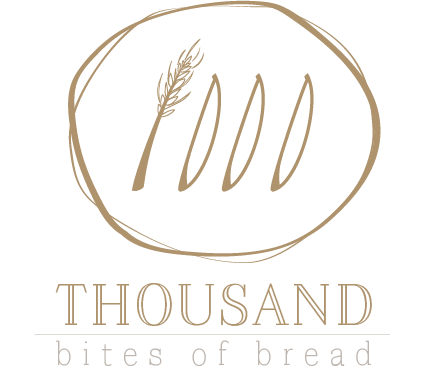Brad Holderfield grew up around military bases the world over. His family hopped from Alabama to the west coast, then all the way over to Germany. It was weird moving around all the time, and to cope with the inevitable detachment that comes with not being able to put down roots, he retreated into a world of fantasy and daydreaming.
There is a wild, ethereal air about him, even today at thirty-something. While totally grounded in his knowledge about bread and baking, he has a spacious look in his eyes, as if he might be seeing all that surrounds him with a touch of the fantastical. That’s why it was no surprise recently when he charmed a room of would-be bakers by breaking from his soft-spoken lesson about whole grain bread into a wry smile, blurting out that unsoaked ingredients are like cartoon pirates. As in, they hop on the sails of your gluten development and tear through as if they’re swinging cutlasses. The room erupted in spellbound laughter.
Brad is the head baker at Tabor Bread, a bakery in Southeast Portland that’s led the movement of serving locally-sourced 100% whole grain breads. Although Brad has done stints at other established bakeries to improve his craft, he has mostly been thrown into a world of bread that has little modern precedence. He’s young by baker’s standards, but at the helm of a movement to keep bread wholesome and simple, and he’s fearlessly delved into all manner of old-world trades that have mostly been lost to us. In his four short years as a baker, he’s learned and become a voice on such processes as milling whole grains, or say, how to keep your bran particles from acting like little pirates.
It’s hard to imagine Brad as a computer programmer, stuck in a white-washed room for days on end, but that’s exactly where his career started until he figured out his next move. He was always intrigued by math. Everything changed when he first started baking bread at home, then decided to go to pastry school. Bread captured him.
“The coolest thing about bread is that it puts you in touch with your senses again,” he said one afternoon outside of Tabor while he took a break from shaping rounds. “When I was a programmer, I was slowly turning into the blank walls I looked at all day.”
It wasn’t long before he traded up to baker’s math and that’s what landed him where he is today.
In late August of 2014, I first met Brad at the Grain Gathering. For those who don’t know what that is, picture a jamboree of bakers, millers, and farmers in a bucolic wheat field at the height of harvest. Brad and two other miller/bakers stood in an open meadow expounding on the trials and tribulations of milling flour. Brad is humble and quiet most of the time, but he commands attention. You get the sense that he’s only going to talk when there’s actually something to say. Although his manner doesn’t immediately bespeak a frenzied passion, he is fervent, nonetheless, and he has a pace that matches the breads he bakes; conversation ferments slowly, but it’s full of substance.
He makes exceptional bread—even with all the cutlass-donning bran hanging onto the sails. He’s found a way to mutiny the ship and steer the gluten where he wants it to go, all with a quiet, unstoppable enthusiasm. As the current head baker at Tabor, he has influenced many of the flagship breads on offer—red wheat boule, white wheat batard, spelt porridge loaf. He shows most pride for the weekly special breads such as the semolina cardamom date (my favorite!) or the delectable light rye he created, which was almost certainly influenced by his time in Germany.
Baking alongside Brad drives home a few lessons.
He is an advocate of knowing the rules, but he’s also a fan of breaking them. “Pay attention,” he cautions. “The rules don’t always apply.”
“It’s not smart or fun to follow the rules if they’re not working,” he says. He knows from experience that when you’re making 100% whole grain bread, sometimes the things you think you know will shift depending on the grain, not to mention all the other variables that bakers contend with—time, temperature, moisture, etc…
The antidote? Practice enough that when it comes time to break the rules you feel confident doing so.
For learning the rules, he recommends a lot of the same books that I do right here. For learning to break the rules? Make mistakes. Again and again. Play and make mistakes and learn to judge for yourself. “Trust your instincts,” he says. “In the end, you still get to eat your mistakes.”
At the closing of class, he sent his students off with parting wisdom that will give them the confidence to delve in.
“Have you ever had bread from Safeway?” He asks with an old salt smile. “Even the worst thing you can make at home will be better than that stuff.”
